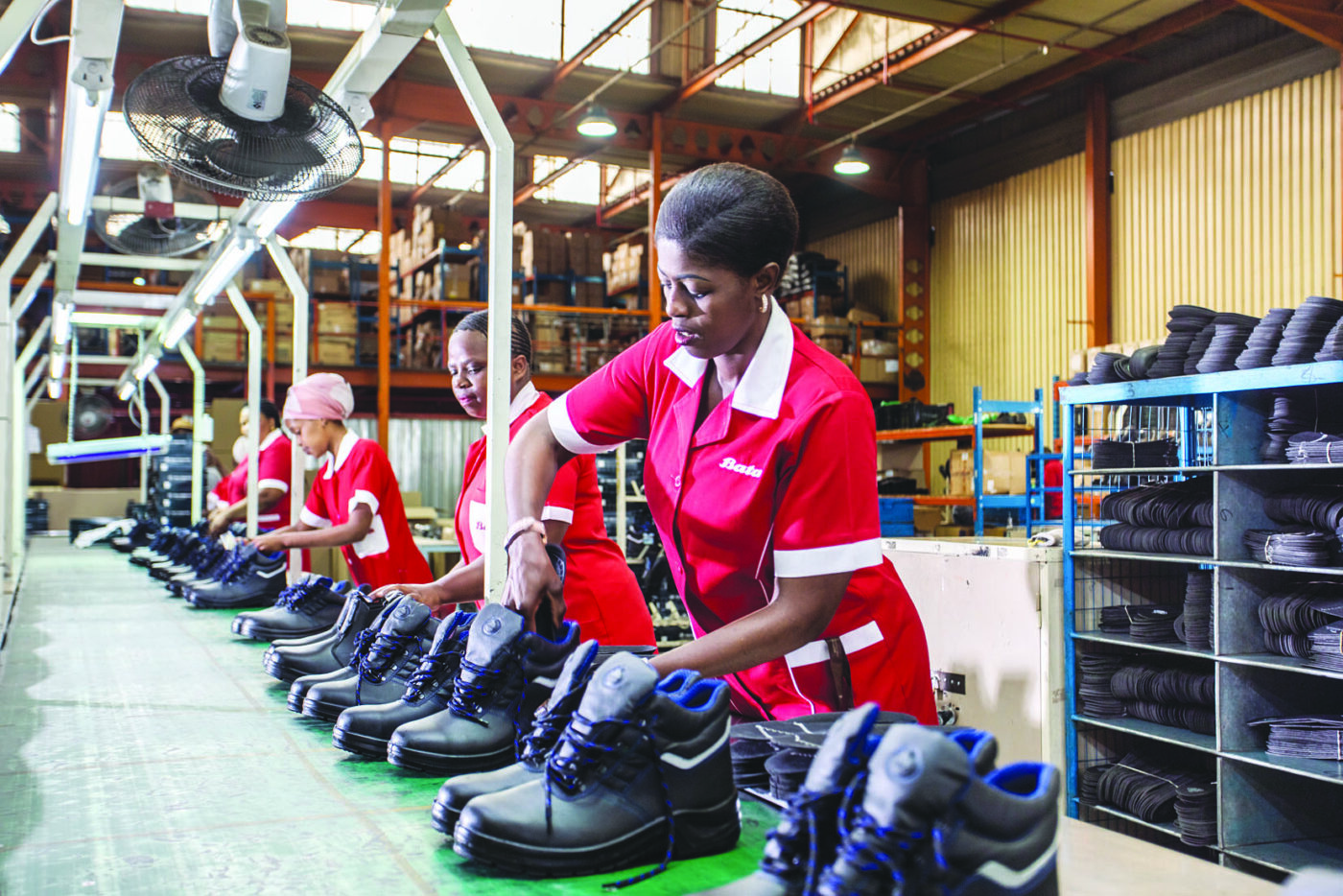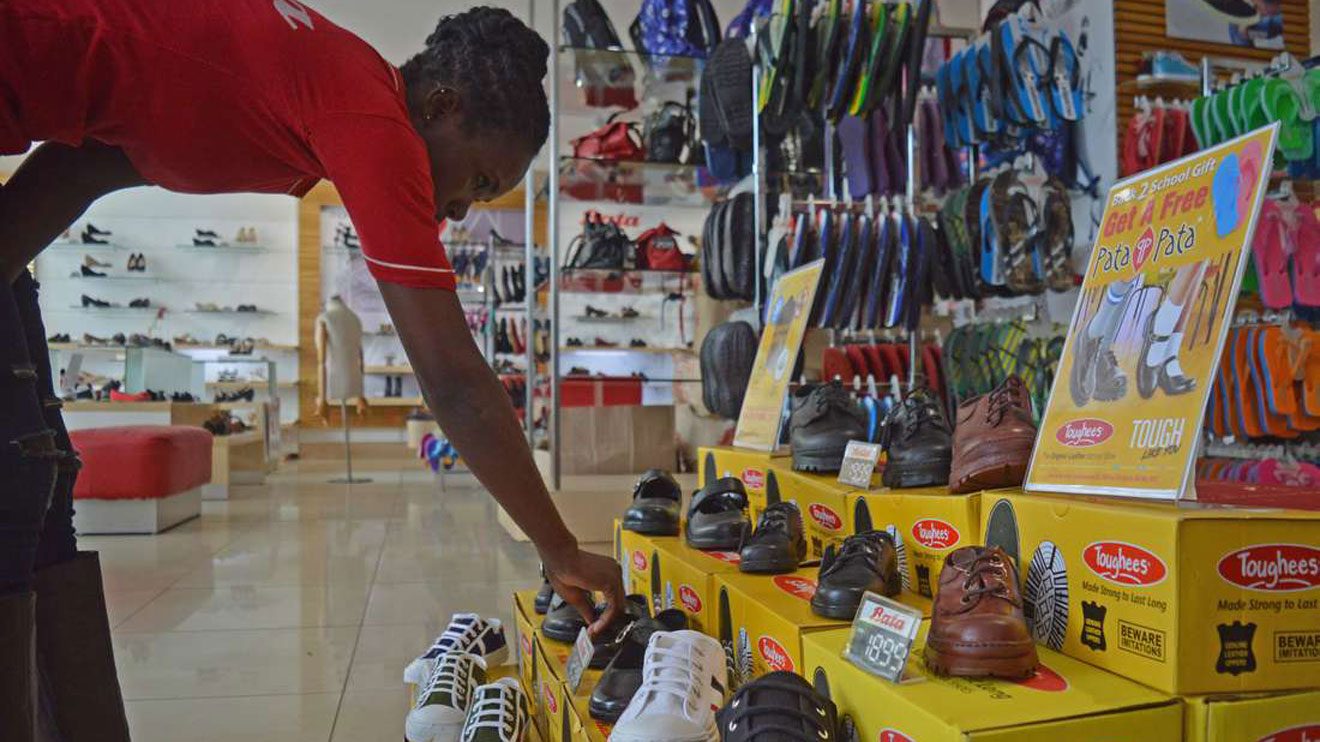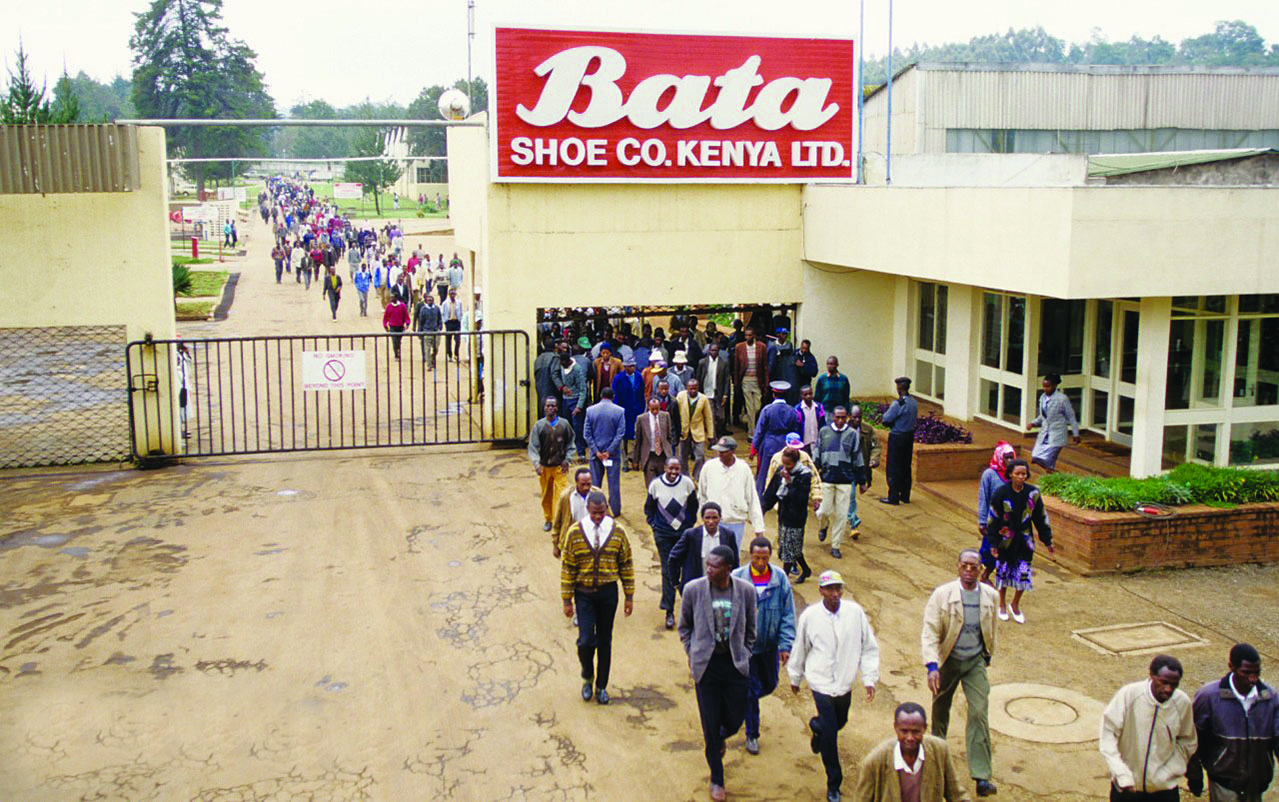#25
BATA
Known for its deluxe shoe collection and with a national retailer network of well over 120 uber-modern stores across Kenya, Bata is the heavyweight footwear manufacturer and retailer in the country.
The company was founded in 1894 in Zlin, Czechoslovakia, by a gentleman named Tomas Bata, born from a family deeply involved in shoe making.
In 1932, Bata opened its first stores in Kenya, one in Mombasa and one in Nairobi. In June 1939, the construction of a footwear factory in Mombasa began, providing employment for about 100 people. This unit was soon shut down and the production transferred to Limuru.
In 1942, a new manufacturing plant was built in Limuru, along with a residential area for employees. This naturally led to an increase in the workforce, and a mere four years later, Bata was a proud employer of 1,400 people, with Limuru being the headquarters of Bata for the then British East Africa.

In 2020, Bata embarked on an expansion drive to increase its presence both in the Kenyan and East African regional markets as competition in the footwear market began to intensify. The plan to modernise its stores and product collection-line, in alignment with fashion trends, has been implemented in multiple stores country-wide. Bata’s expansion drive has increased competition in the market that has seen the entry of other investors like Deacons and Mr Price dealing in the sale of shoes.
Today, Bata sells over 30 million pairs of shoes annually and employs over 2,000 people in Kenya. Additionally, the company has diversified its product portfolio to include socks, insoles, ladies handbags, school and travelling bags, belts, wallets and shoe care products such as polish.

School shoes have been the signature of Bata shops for decades. Primarily manufactured under the Toughees brand since 1954, these shoes are designed to withstand the rigours of daily wear by school-going children. The shoes are made from tough leather and are built to last, hence the name ‘Toughees’.
Original to Kenya, the Safari Boot is a well-grounded outdoor shoe that is hand-stitched. The casual shoe is designed for activities such as hiking and camping, and is made from durable materials to provide good traction on uneven terrain. As Mwenda wa Muchemi, a writer at Kenya’s Business Day, gracefully states: “Whether dominating the view on an overhang billboard, or perched patiently on a shelf waiting for a suitor, Bata’s Safari Boot is an undisputed Kenyan icon. Wherever it travels, it easily conjures up the image of Kenya”.
One of the most notable Bata products, the Bata Bullets, were first introduced in Kenya in the 1980s, quickly becoming a sought after choice among Kenyan youth. They are a low-cut canvas shoe with a rubber sole and come in a variety of colours. The shoe’s popularity has endured over the years, and it remains a recognizable symbol of Kenyan culture and fashion.

Popular among the ladies, Bata Comfit is a range of shoes created for comfort and style. These shoes are made with special features such as cushioned insoles, flexible soles, and breathable materials to provide a comfortable fit for everyday wear.
Bata Power is designed for sports and fitness activities. Known for their durability and comfort, the shoes are a favourite among athletes and fitness enthusiasts. They are typically made with high-quality materials and feature advanced technologies that provide support, stability, and cushioning.
Other shoe brands incorporated under the Bata product portfolio include Ngoma, Pata Pata, Sandak, North Star, Bubblegummers, Weinbrenner, Sandak, Hush Puppies and Marie Claire.
One of the reasons for Bata’s success in Kenya is its focus on providing affordable footwear that meets the needs of all its consumers, solidifying itself as a customer-obsessed brand. With something to offer to every section of society, from children to the older generations, Bata has it all.

Another factor is Bata’s commitment to innovation. The company has continuously introduced new technologies and materials to improve the quality and durability of its shoes. For example, after initially only producing shoes with leather soles, Bata developed shoes with rubber soles in the 1960s, specifically designed for Kenyan terrain.
Furthermore, Bata has established partnerships with local communities in Kenya to source raw materials and provide employment opportunities. The company works closely with small-scale farmers to produce high-quality leather, which is used in the production of its shoes, belts and bags.

Bata is happily committed to social responsibility. The firm has implemented numerous initiatives aimed at improving the lives of Kenyans, including providing shoes to school children in underprivileged areas and investing in local manufacturing facilities. Steered by the first-rate and futuristic leadership provided by Benson Okumu as Managing Director, Bata sets the standard when it comes to affordable, comfortable, stylish and practical footwear, labelling it a formidable, customer-obsessed shoe brand in Kenya.
















